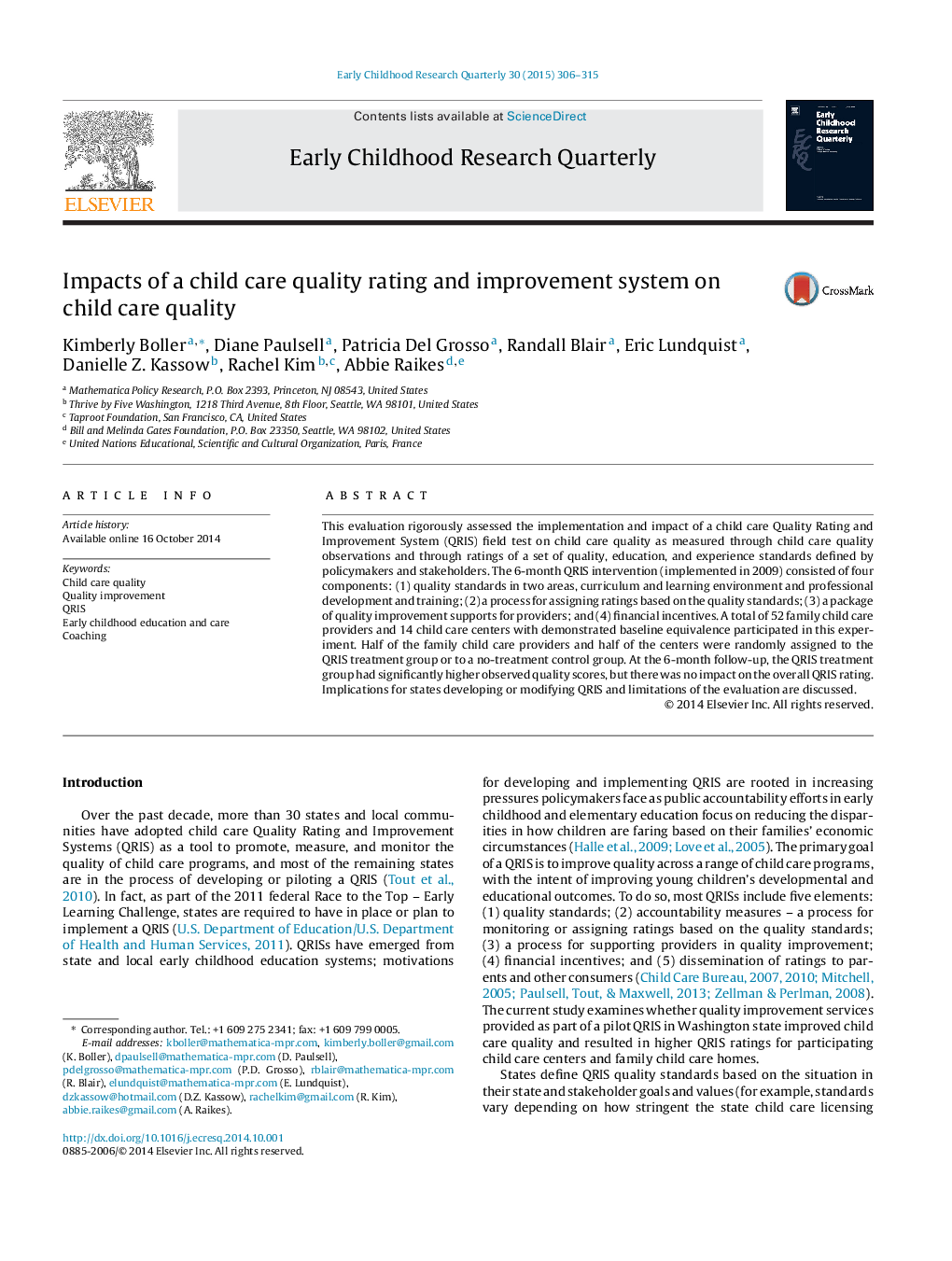| Article ID | Journal | Published Year | Pages | File Type |
|---|---|---|---|---|
| 353750 | Early Childhood Research Quarterly | 2015 | 10 Pages |
•We assess the impact of a child care quality rating and improvement system (QRIS).•On average 7 of the 8 targeted hours of the coaching treatment were delivered.•Treatment group centers had higher observed quality than the control group centers.•Similar impacts were found for family child care providers.•Higher observed quality did not yield higher QRIS ratings overall.
This evaluation rigorously assessed the implementation and impact of a child care Quality Rating and Improvement System (QRIS) field test on child care quality as measured through child care quality observations and through ratings of a set of quality, education, and experience standards defined by policymakers and stakeholders. The 6-month QRIS intervention (implemented in 2009) consisted of four components: (1) quality standards in two areas, curriculum and learning environment and professional development and training; (2) a process for assigning ratings based on the quality standards; (3) a package of quality improvement supports for providers; and (4) financial incentives. A total of 52 family child care providers and 14 child care centers with demonstrated baseline equivalence participated in this experiment. Half of the family child care providers and half of the centers were randomly assigned to the QRIS treatment group or to a no-treatment control group. At the 6-month follow-up, the QRIS treatment group had significantly higher observed quality scores, but there was no impact on the overall QRIS rating. Implications for states developing or modifying QRIS and limitations of the evaluation are discussed.
